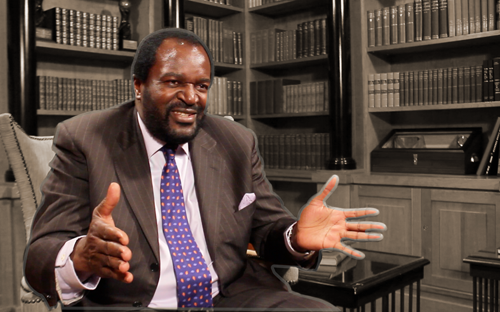Telecel denies rumours of disinvestment in Zimbabwe
By Samuel Mungadze
GLOBAL telecoms operator Telecel International has denied rumours that it is pulling out of Zimbabwe. The company on Monday dispelled reports that it was shutting down because it was reluctant to pay the $137.5m required for a new 20-year licence.

The company owns 60% of Telecel Zimbabwe, with the balance owned by Zimbabwean consortium Empowerment Corporation. The latter holds its 40% through a vehicle owned by indigenous groups under the chairmanship of businessman James Makamba. Patrick Zhuwawo, a nephew of Zimbabwean President Robert Mugabe, was appointed MD of Empowerment Corporation last year.
Telecel Zimbabwe’s 15-year licence expired in June last year and was renewed after it promised the Zimbabwean government that it would abide by the country’s indigenisation law, which states that foreign companies should cede 51% of ownership to black Zimbabweans.
On Monday, John Swaim, chairman and MD of Telecel International, said the operator had been “puzzled by recent articles in the southern African press questioning Telecel International’s ongoing commitment to its investment in Telecel Zimbabwe”.
He said: “The fact is that we have never been more positive about our prospects in Zimbabwe. Following successful completion of the licence renewal negotiations last year, we are excited by Telecel Zimbabwe’s launch of a number of attractive and important initiatives, notably the Telecash mobile financial services offer, as well as Telecel Business.”
Telecash is a newly launched mobile money transfer system, while Telecel Business provides exclusive mobile solutions, including voice and data, to local businesses.
Mr Swaim said the company was also continuing with the expansion of its network and retail footprint.
“We are delighted with the progress of the restructuring negotiations which we are conducting with our long-time partner in Telecel Zimbabwe, Empowerment Corporation. This will put the company on a solid footing to continue to provide extraordinary service to Zimbabweans while continuing our compliance with Zimbabwean foreign ownership requirements,” he said.
Mr Makamba said: “All the media reports last week were untrue. We are working together with Telecel International and want to grow the network. This is evidenced by the launch of Telecash. We are in the process of growing the company, have strong bonds with our partners, and believe in providing good services to the people of Zimbabwe.”
The initial reports that the licence may not be renewed appeared in the Mail & Guardian newspaper last week, with claims that Telecel International was reluctant to inject fresh capital into the business.
High telecommunications licensing fees introduced by Zimbabwe last year were said to be stifling the sector’s growth prospects, with analysts warning that exorbitant charges, aimed at raising more revenue for the cash-strapped Harare government, would encourage oligopoly and hinder fair competition.
Three weeks ago, Zimbabwe gazetted additional licensing fees. Since January 24, prospective players have had to pay a new nonrefundable application fee of $160,000, a new annual fee of $2,500, and $1,000 in levies towards the country’s Universal Services Fund.
The Universal Services Fund is used to promote the principle that all Zimbabweans should have access to communications services. It is used to provide infrastructure for services such as internet and voice, for all consumers, at just, reasonable and affordable rates.
The previous fee was 2% of annual revenue, and 0.5% of revenue paid to the fund. Business Day Live






